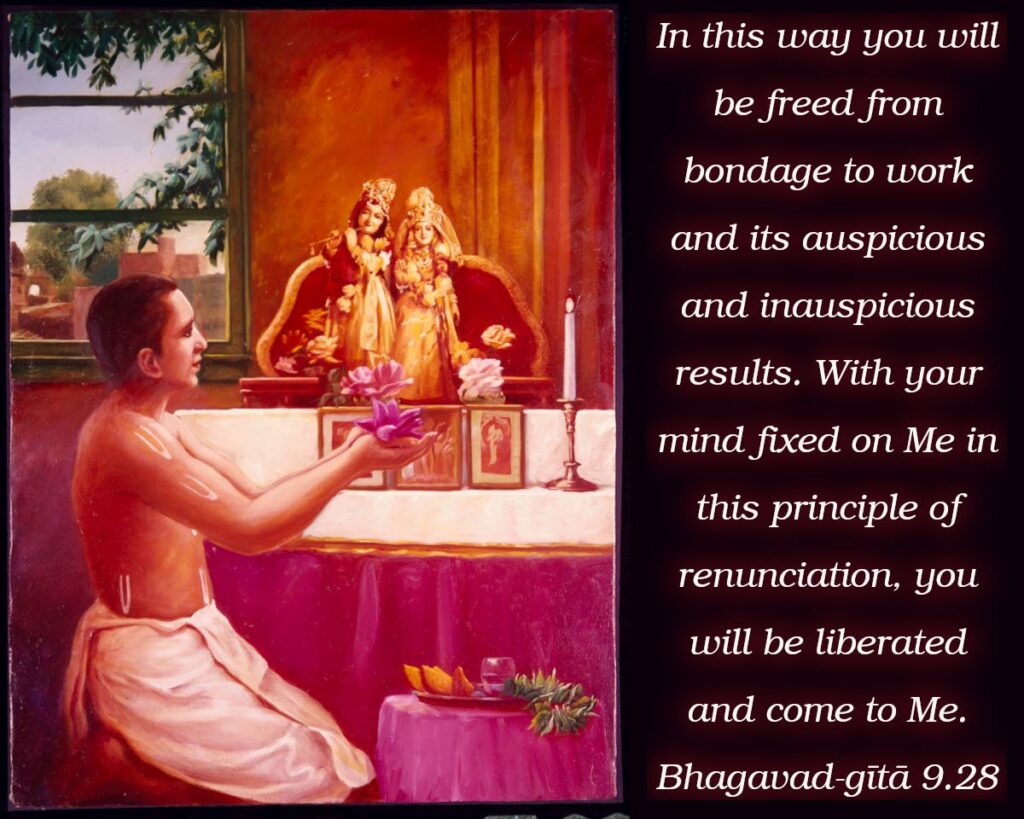शुभाशुभफलैरेवं मोक्ष्यसे कर्मबन्धनै: |
संन्यासयोगयुक्तात्मा विमुक्तो मामुपैष्यसि || 28||
śhubhāśhubha-phalair evaṁ mokṣhyase karma-bandhanaiḥ
sannyāsa-yoga-yuktātmā vimukto mām upaiṣhyasi
śhubha aśhubha phalaiḥ—from good and bad results; evam—thus; mokṣhyase—you shall be freed; karma—work; bandhanaiḥ—from the bondage; sanyāsa-yoga—renunciation of selfishness; yukta-ātmā—having the mind attached to Me; vimuktaḥ—liberated; mām—to Me; upaiṣhyasi—you shall reach
Translation:
Thus shall you be free from the bondage of actions, which bear good or evil results. With your mind firmly set on the yoga of renunciation, you shall become free and come to Me.
Commentary:
It is clear that the Lord is teaching the renunciation of the fruits of actions and not the renunciation of actions. Sanyasa here means renunciation of the fruit of action. Such a man who practices renunciation of the fruit of action (Karmaphalatyaga) is freed from all the bonds of Karma.
The term Moksha is frequently used by all people. What does it mean? Where is the Moksha? Here is the meaning of it. Freedom from bondage is Moksha. What is this bondage: The bondage of karma done by men with a sense of personal doership and desire for its fruits. To give up the fruits of karma to God is Moksha. It is Sanyasa. From the point of view of self-realisation, both good and evil are in the realm of the unreal. But the seeker has to release himself from evil first and then give up good also. Then he reaches the Nirvikalpa state. This is the surest way to liberation and union with the Lord.
Related Articles:
- He who acts placing all actions in the eternal Brahman, giving up attachment, is unaffected by sin like the lotus by water. (BG 5.10)
Question: How can man free himself from the bond of karma?
Answer: By surrendering all actions to the Lord, man is freed from Karma and obtains God’s grace.
Bhagavad Gita: Chapter 9 🔻 (34 Verses)
